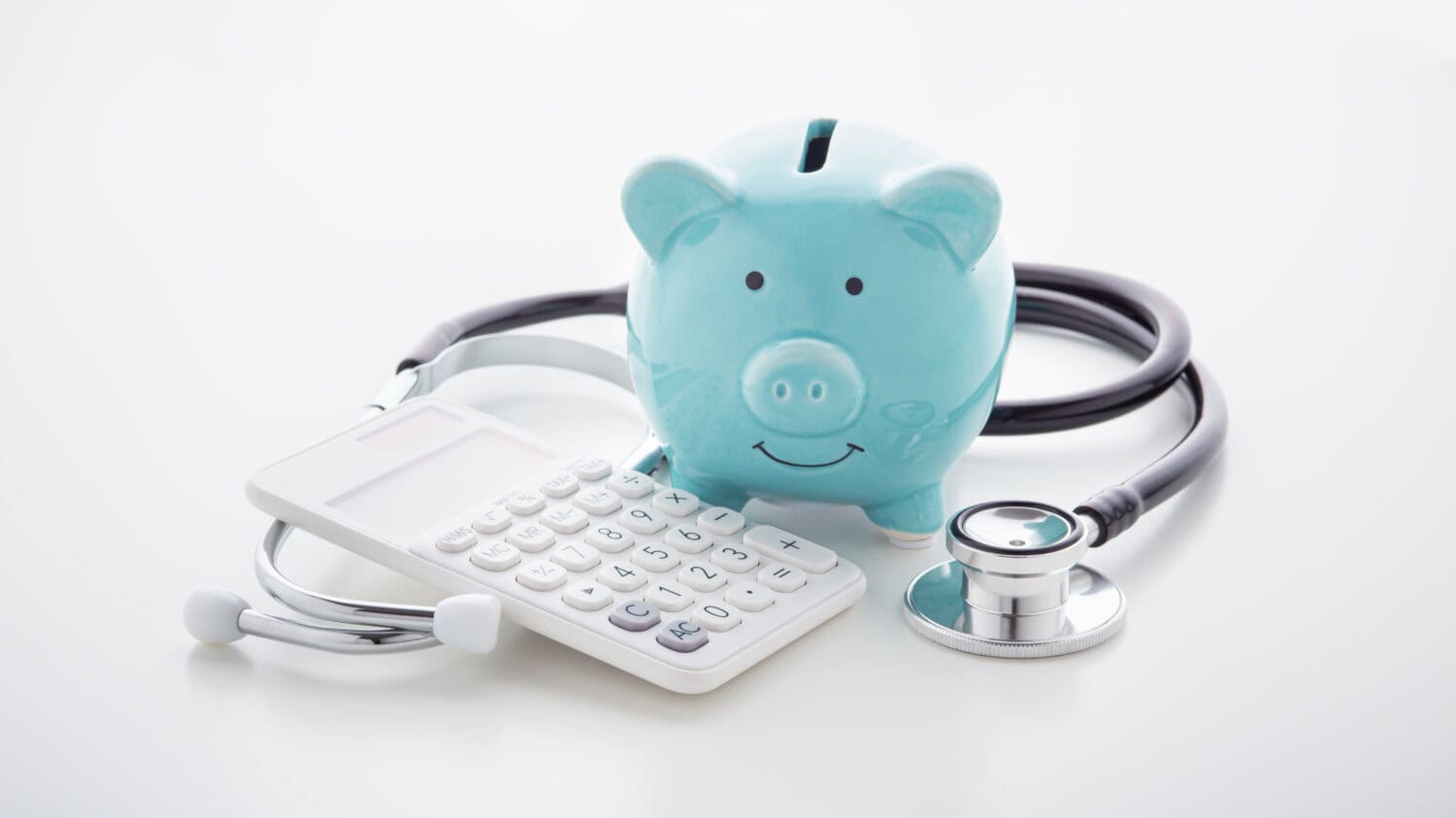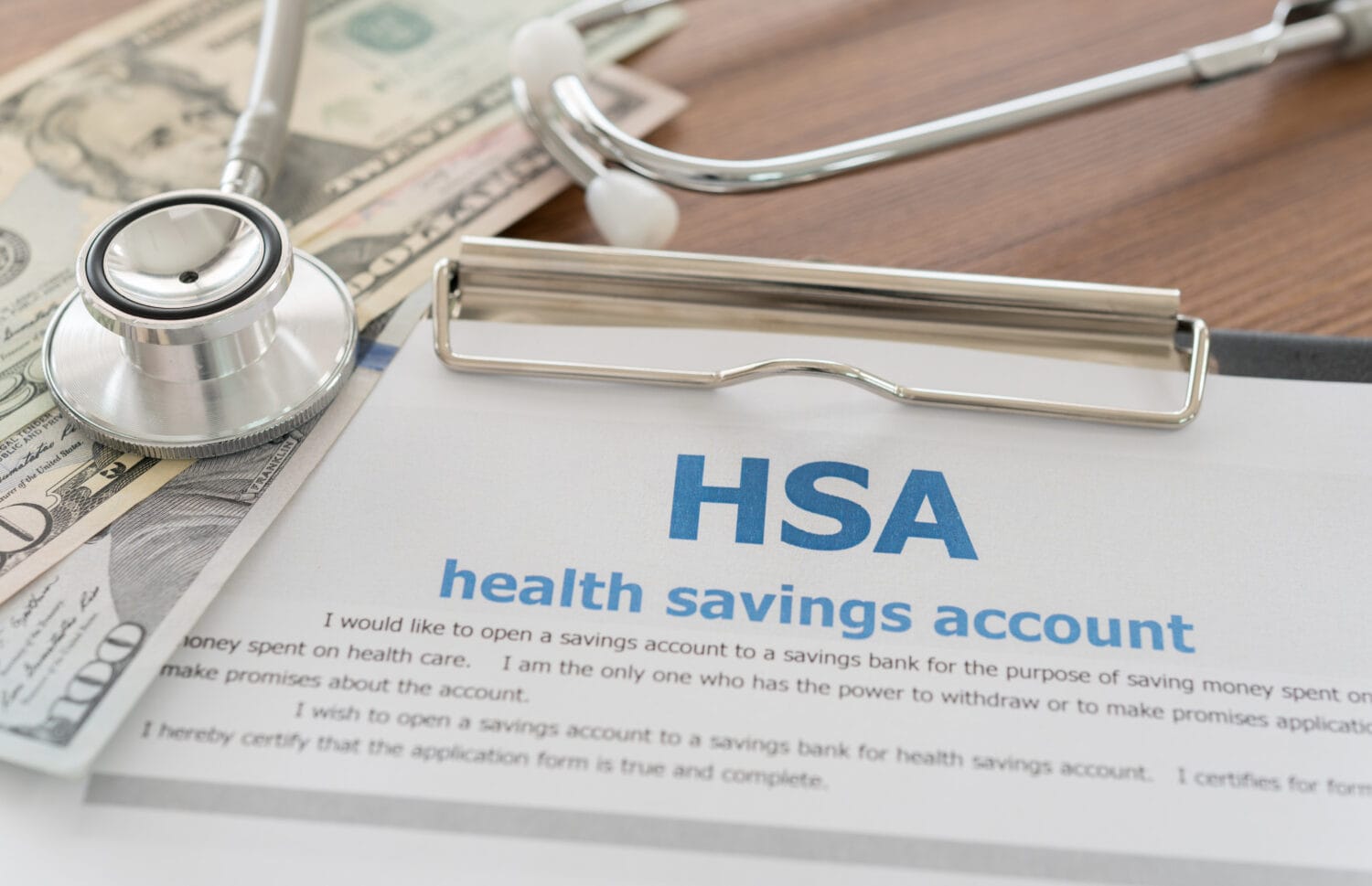
A health savings account (HSA) helps you save for future medical expenses, while offering distinct tax breaks. In fact, many financial experts consider it one of the most tax-advantaged savings accounts out there.
Here are the key HSA tax benefits.
- Contributions are tax-deductible
- Savings in an HSA grow tax free
- Withdraws or distributions from HSAs are tax-free if used to cover qualified medical expenses
However, using your HSA distributions on anything that’s not a qualified medical expense before age 65 would hit you with a 20% penalty on the distribution in addition to ordinary income tax.
HSA eligibility requirements

Before you can open an HSA, you need to have a high-deductible health plan (HDHP). For 2024, the annual deductible minimum is $1,600 for individual coverage or $3,200 for family coverage.
So check with your health plan provider to make sure your HDHP meets the requirements to be paired with an HSA.
And if you qualify and you’re interested in opening an HSA, there are a few ways to do so.
How to open an HSA

Some employers offer HSAs as part of their health and savings benefits options. But don’t worry if yours doesn’t. You can open an HSA through various financial institutions like Fidelity and Schwab.
Many HSA providers let you contribute to an HSA much like you’d do to an individual retirement account (IRA) or 401(k). So you may be able to invest your HSA in the following.
- Mutual funds
- Exchange-traded funds (ETFs)
- Fixed-interest accounts
- Stocks
What are HSA qualified expenses

Withdrawals from HSAs are tax-free if used on qualified medical expenses as defined by the IRS. HSA eligible medical expenses cover a wide range of medical, dental, and prescription costs.
Examples include the following.
Medical
Acupuncture
Acid controllers
Alcoholism treatment
Allergy and sinus medicine
Ambulance
Anti-diarrheals
Anti-gas products
Anti-itch and insect bite
Anti-parasitic treatments
Baby rash ointments/creams
Birth control
Body scans
Breast pumps and lactation supplies
Chiropractor
Co-insurance (medical, dental or vision)
Co-payments
Deductibles
Diabetic supplies
Diagnostic services
Drug addiction treatment
Feminine anti-fungal/anti-itch
Fertility enhancements
Flu shots
Guide dogs or other service animals
Hearing aids and batteries
Insulin
Laboratory fees
Learning disability treatments
Menstrual care products
Medical equipment and repairs
Medical monitoring and testing devices
Nursing services
OB/GYN
Office visits
Oxygen
Physical exams
Physical therapy
Pregnancy tests (over-the-counter)
Prescription drugs
Prosthesis
Psychiatric care
Reconstructive surgery following
Respiratory treatments
Mastectomy
Sleep aids and sedatives
Smoking cessation (programs/drugs)
Speech therapy
Sterilization
Stomach remedies
Surgery
Vaccinations
X-ray fees
Dental
Braces
Dentures
Exams
Extractions
Fillings
Teeth cleaning
X-rays
Vision
Contact lenses
Examinations and glasses
Laser eye surgery
Reading glasses (over-the-counter)
For a complete list of qualified medical expenses, see the most current version of IRS Publication 502. Keep in mind this list is subject to change at the discretion of the IRS.
HSA retirement benefits

When you reach the age of 65, you can withdraw money from an HSA penalty-free. But you’d still owe ordinary income taxes on the distribution. Still, it’s a benefit that can help you use an HSA to supplement an IRA or 401(k) in retirement.
To make the most out of your HSA as a retirement savings tool, you should aim to max out your HSA if you can. Each year, the IRS sets contribution limits to HSAs.
Here are the HSA contribution limits for 2024.
- $4,150 for individual coverage
- $8,300 for family coverage
In addition, HSAs allow catch-up contributions for those aged 55 and older, who can contribute an additional $1,000 in 2024.
Why this matters

HSAs are effective health savings tools that can also help you in retirement. But there are some key points you should know to make sure this is the right option for you. So we built this guide to help you learn more about HSAs, as well as their benefits and rules.
If you want to learn more about HSAs, check out our regularly-updated HSA main page for the latest coverage.
In 20 Years, I Haven’t Seen A Cash Back Card This Good
After two decades of reviewing financial products I haven’t seen anything like this. Credit card companies are at war, handing out free rewards and benefits to win the best customers.
A good cash back card can be worth thousands of dollars a year in free money, not to mention other perks like travel, insurance, and access to fancy lounges.
Our top pick today pays up to 5% cash back, a $200 bonus on top, and $0 annual fee. Click here to apply before they stop offering rewards this generous.
Flywheel Publishing has partnered with CardRatings for our coverage of credit card products. Flywheel Publishing and CardRatings may receive a commission from card issuers.
Thank you for reading! Have some feedback for us?
Contact the 24/7 Wall St. editorial team.





